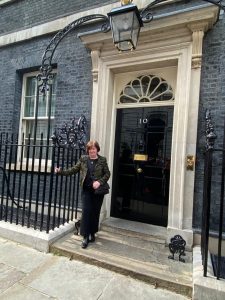You may have seen the stories in the press recently about the huge pay weekly store, BrightHouse, being investigated by the Financial Conduct Authority (FCA) for alleged overcharging and hard sell tactics.
The FCA have ruled that BrightHouse did in fact act irresponsibly and ordered the company to pay around £15m to over 80,000 people affected. This would take the form of paying back interest charged with an additional 8% on top for compensation.
There was a very interesting report on the Brighthouse story yesterday by Vanessa Feltz, sitting in for Jeremy Vine on the BBC Radio 2 show.
The segment featured Sue Hayward, Financial & Consumer Journalist, Lois Grant, who worked as a branch manager for BrightHouse before resigning because of unacceptable sales techniques and MP, Ed Milliband.
BrightHouse took advantage
Sue Hayward, Finance & Consumer Journalist stated that Brighthouse took advantage of people, many of whom were on low incomes and were not credit worthy enough. They either struggled to pay back the loans or had to hand the goods back because they struggled to pay for them. She continued that personal details were not checked at all and this should not have happened.
Unacceptable sales techniques
Lois Grant, who worked as a BrightHouse branch manager before resigning because of what she considered unacceptable sales techniques, said, they were given targets that just went up and up, doubling at Christmas. She said the only way to meet the targets was to encourage staff to sell, sell, sell and this meant often not checking income and expenditure at all.
Credit unions are a crucial part of the story
Ed Milliband, Labour MP, outlined his recent BBC investigation which found much what Lois had confirmed; very high prices, selling to vulnerable people at eye watering amounts of interest. He continued that some of these vulnerable people had learning difficulties and simply didn’t know what they were doing.
He said that people are sold on the weekly amounts and because there is a need for the goods (washing machines, sofas, TV’s etc) they don’t feel they have a choice.
Ed stressed that there are three critical points that have come out of the investigation:
1. There is a need for people to be protected and should not be sold goods in this way.
2. People should not be charged interest which is in some cases more than double what the item costs, eg. a washing machine costs £400 and with interest the repayment is almost £1000.
3. There are alternatives, like credit unions, who are not making profits from people and who actually care about individuals.
He explained that the investigation came about after a real demand from his own constituents. The local BrightHouse store in his constituency has a massive range of attractive goods enticing and tempting people. In addition people were encouraged to refer family and friends and were given money off for doing so.
He reiterated that people DO have an alternative in credit unions and such organisations allow people to borrow from a trustworthy source.
Ed Milliband rounded up by clarifying that although BrightHouse can continue to trade, the fundamental question to the FCA is whether they will enforce a price cap in the market in the same way that they did for pay day lending companies.
Finally, he concluded that the crucial part of the story is the need to develop credit unions enabling people to be aware of the alternative choice they have.
You can listen to the full interview on BBC Radio 2, here. Forward through to 1 hr 10 mins where the report starts.








